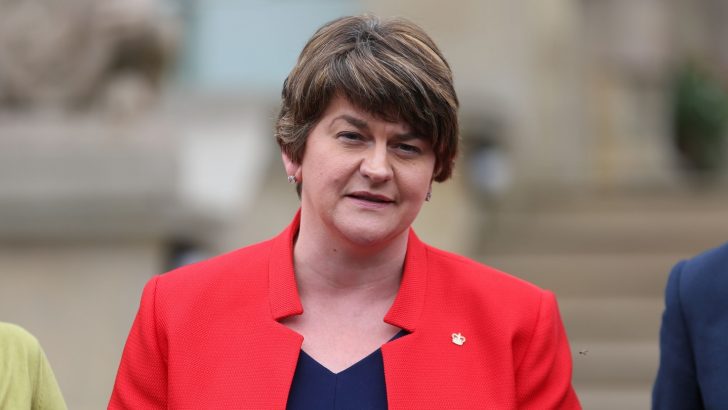The people of Northern Ireland have been through a very difficult time. For over 50 years (indeed longer) they have hoped for a better future and their hopes have appeared to be realised from time to time over the decades.
Yet time and again, they have seen the collapse of all that they have aspired to in terms of good governance and a safe place for their children to grow and flourish. Time after time they have been disappointed.
The processes of government created by the Good Friday Agreement were supposed to bring us peace. Peace above all required that we would come to realise that it is possible to live together in harmony, that we could entrust our future to our elected politicians knowing that they would act in the common good, that we would learn that the basis of any civilised society is trust and cooperation.
Once again, we have been disappointed; the Assembly is our legislature, the Executive our government, they were elected in May 2016. I went to the Assembly website to see what legislation they have passed to secure a better future for the people of Northern Ireland since then.
I found that in those eight months they have passed one bill, the Budget Bill which was passed on July 29, 2016. Not a great achievement. The alarm bells were ringing – watching what was going on at the Assembly, I feared for our future. There seemed to be no capacity to make the important decisions which would improve people’s lives. Now, once again, the Assembly has collapsed and we face another election on March 2.
Deterioration
I recently read an article on the front page of The Irish News which said that not one school budget submitted to the Education Authority had been approved in the current year.
Every school in Northern Ireland had had its budget plans rejected after what was reported to be a “serious deterioration” in school finances.
This week I read that Northern Ireland’s GPs are likely to leave the National Health Service (NHS). In December 2016, hundreds of doctors – 97%, according to the BBC – signed undated resignation letters because of funding concerns and workforce strain. If they do resign because a planned rescue deal cannot be implemented we will no longer have an NHS.
I cannot believe that this will happen, yet it is an indication of the seriousness of our situation that the chairman of the NI General Practitioners Committee has said that “general practice is on the edge of a full blown crisis. It is catastrophic”.
Our public services are clearly in a parlous state. The arguments between the DUP and Sinn Féin have been presented in terms of issues relating to the allocation of funding – £1.7m to an organisation reputedly led by a UDA leader; on October 19, 2016 it was reported at a launch in an Orange Hall that funding of £500,000 had been announced to enable minor works and improvements to community halls.
Yesterday it was reported that the funding had increased to £1.9m and it has been alleged that the money has predominantly been directed to one side of the community.
That is not all. We also have the Renewable Heat Incentive (RHI) scheme, a UK-wide scheme which was specially adapted by the NI government, resulting in a cost to the taxpayer of an estimated £490m over 20 years. This, when we cannot afford to run our schools and hospitals.
It was this that ultimately led to the collapse of the NI devolved government. The underlying problems of mutual mistrust and consequential inability to work together are for more significant. We are now in unchartered territory. We will have an election on March 2, but those elected may be unable to form a government.
Negotiations
We may face a couple of years of negotiations (or longer) before some sort of a compromise is reached and those in power stumble back into government. That would mean at least a couple of years of direct rule from Westminster.
The last suspension of the Assembly lasted from 2002-2007, after which the DUP and Sinn Féin came into power. Over the last ten years, little has been achieved. It seems to have been generally accepted that the greatest achievement was simply keeping the Assembly going, but that has not served us well.
Politics is never an easy business.
There are those who jeer at politicians, but the reality is that in our democracy it is we the people who make decisions about who will govern us, who will make the decisions about how best to use the resources available to us, whether we have a doctor to go to, whether there is an education system and employment for those who go through that system, whether our infrastructure will be developed to enable us to play a proper role in a modern industrial world.
The people of Northern Ireland are now faced with a very difficult decision. We need a government which is capable of planning for and providing for the future.
We need politicians who recognise the need to do all they can to secure the common good.
We need to be able to move beyond the politics of sectarianism.
We are in a time of austerity, though we no longer talk about it, and austerity requires that one focuses on securing the best possible return for all the people with the resources available.
We need to concentrate our efforts on enabling our people to develop, and providing for those who need help on their journey, for whatever reason.
We need politicians who recognise that it doesn’t matter whether you are Catholic or Protestant if you are hungry, don’t have a decent pair of shoes, or a warm home, or don’t have the ability to provide for yourself, because you can’t get employment.
Catholics and Protestants worship one God, and the ongoing divisions within our society are a scandal in the eyes of the rest of the world. Our divisions are the product of our history. They need not continue to define us.
Our parties could present us with manifestos and commitments to a future which is not determined by historic identity, but rather one which is predicated upon working out how to make the best of what we have for all our people.
Which party, or parties, in Northern Ireland will have the courage to do that, and to leave behind ancient distrust and division and build a society in which life is valued from conception to death, in which resources are shared out fairly to those who need them, in which respect and compassion and the determination to do our best to build a just society are the real motivators of those who govern?
It can be done. Will it be done?


 Nuala O’Loan
Nuala O’Loan Arlene Foster
Arlene Foster